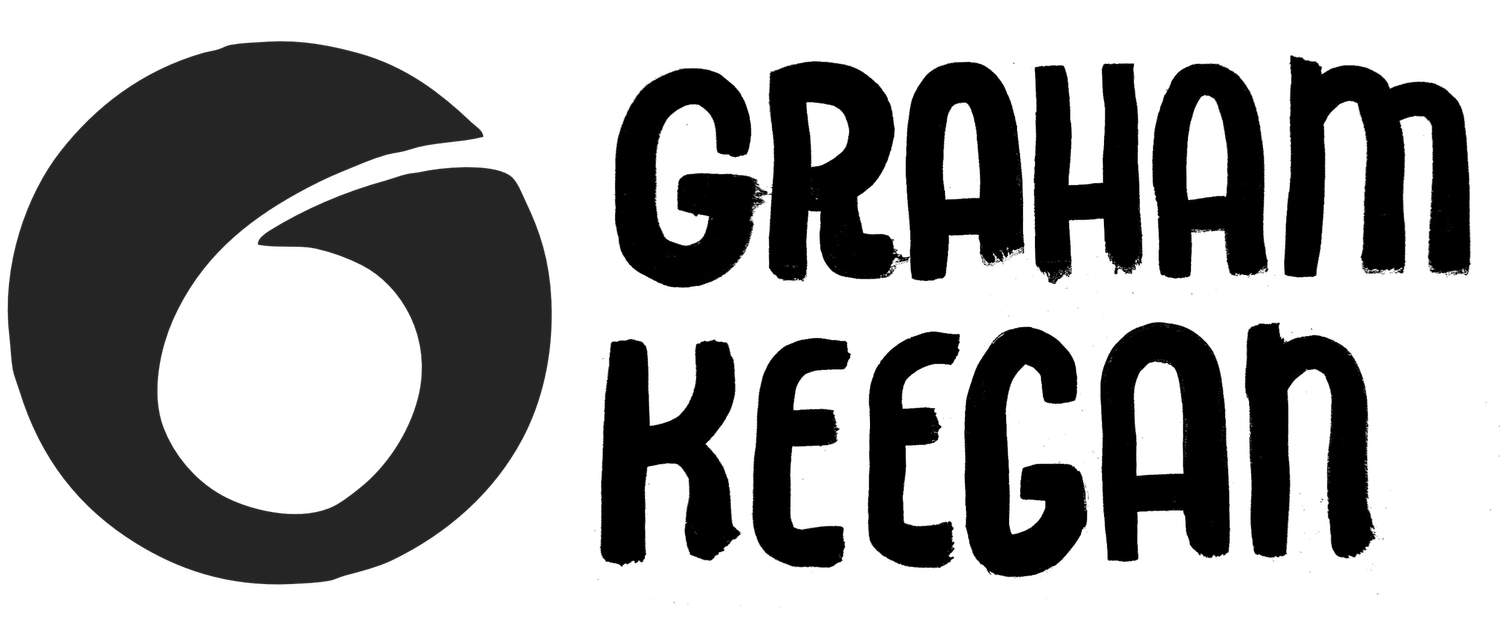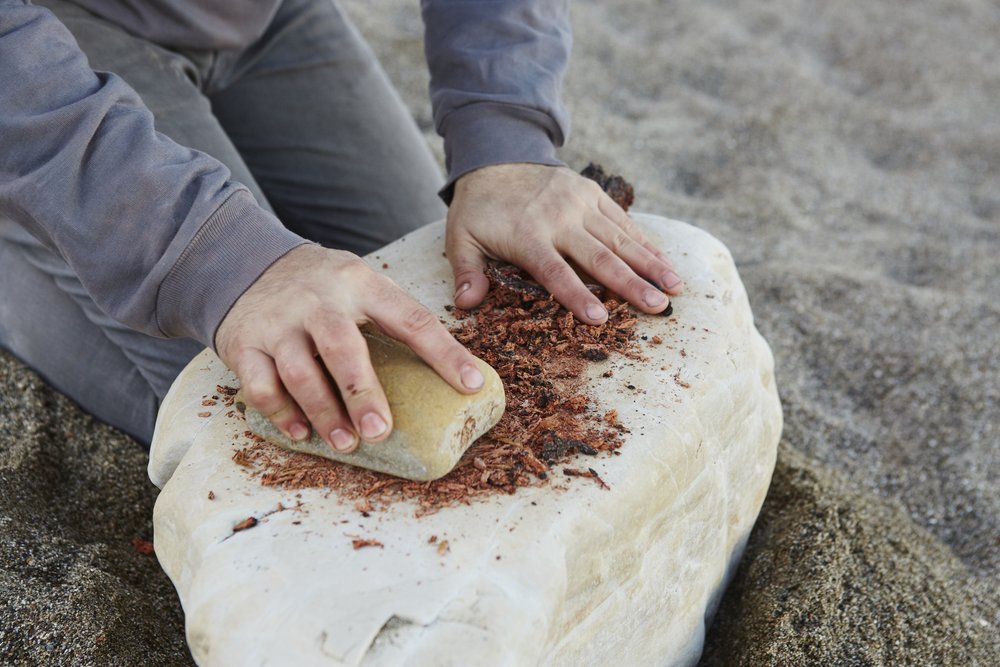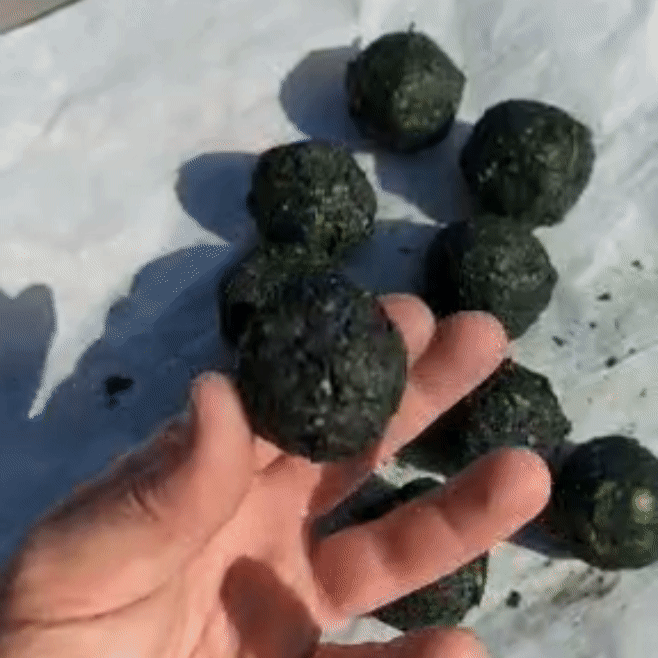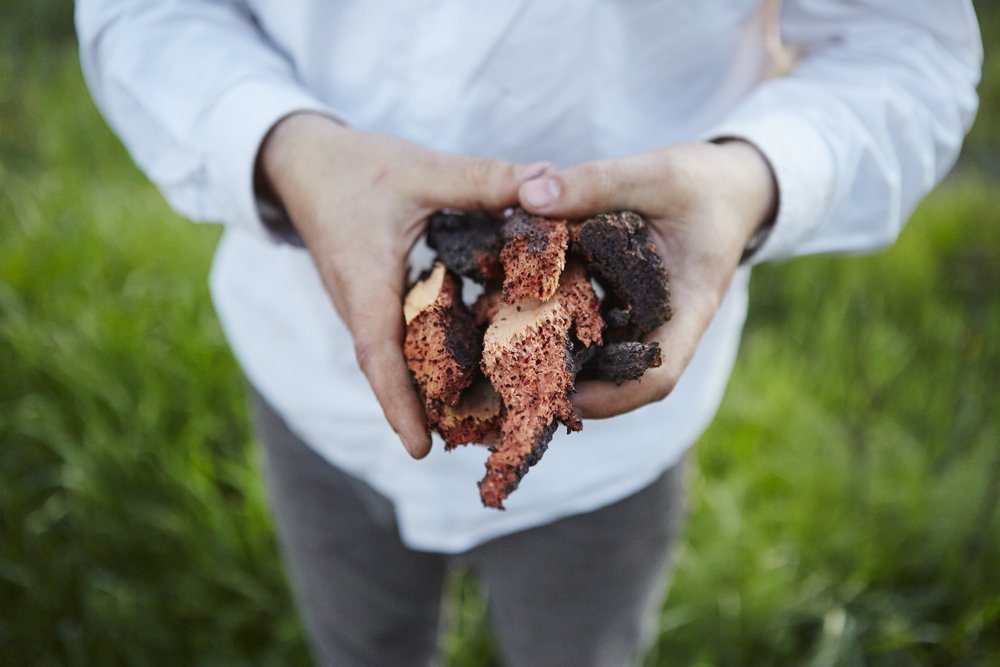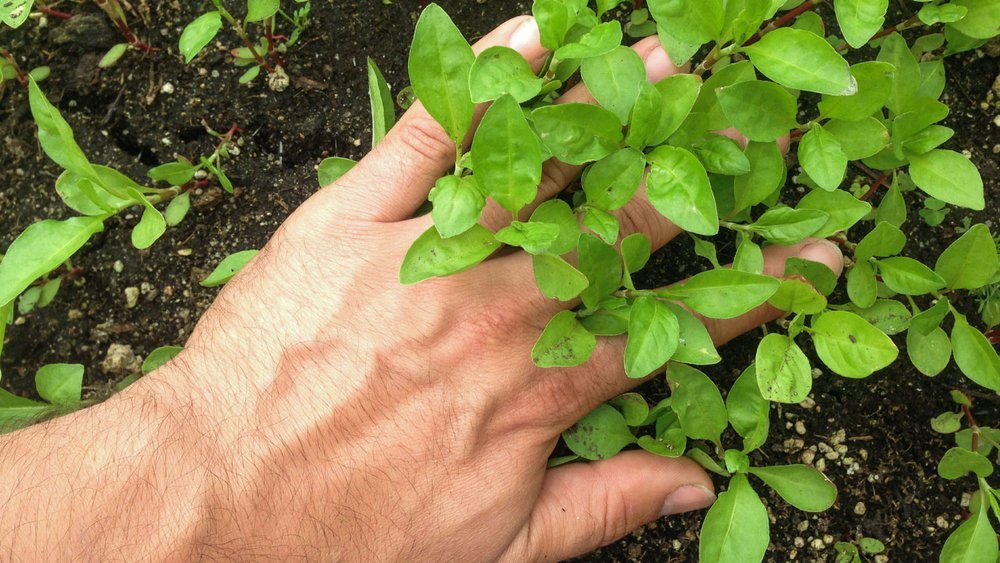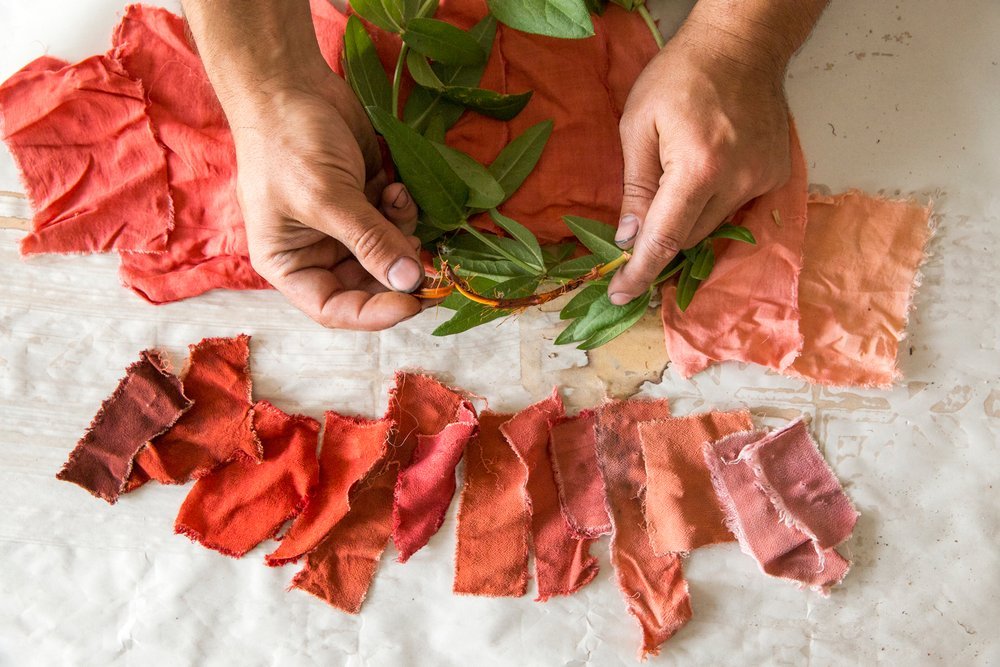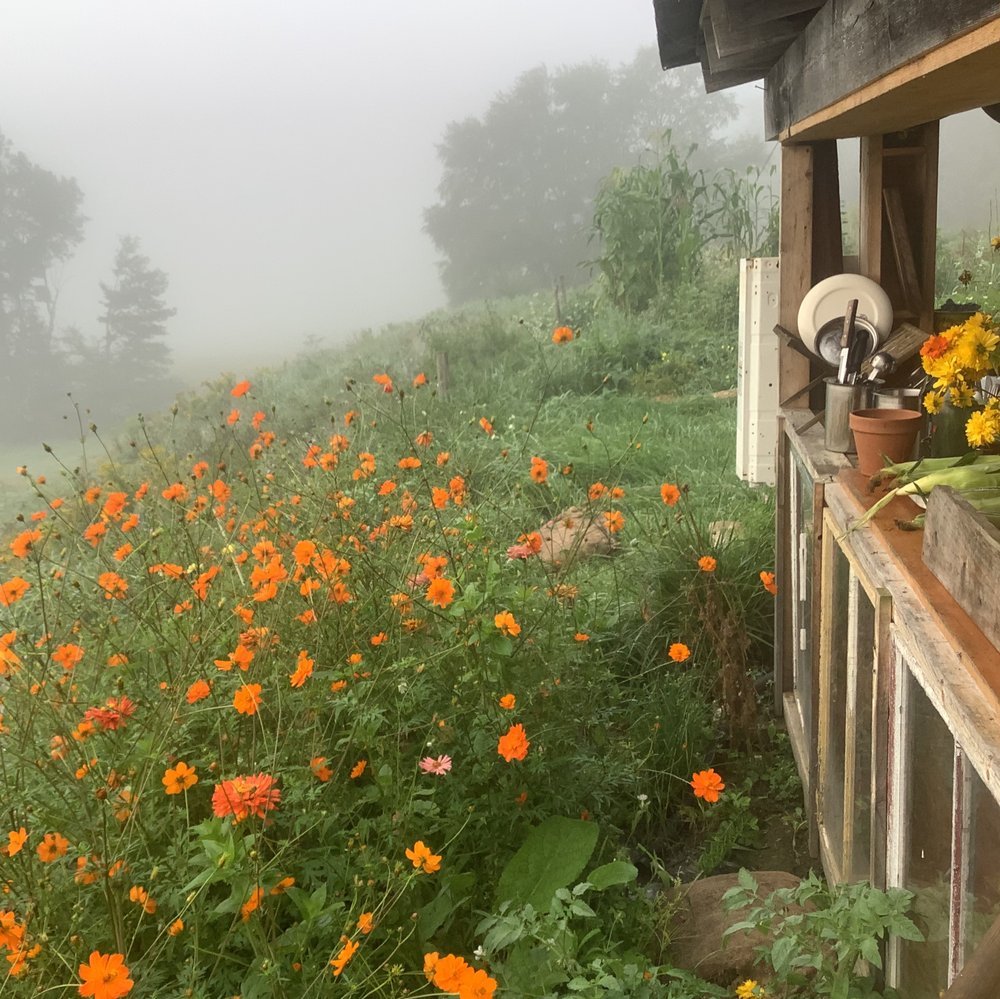The Dyer Cultivator
No Natural Dye Experience Necessary. This is an introduction and we’ll cover material from the ground up!
Monday, April 14 - Friday, April 18, 2025. 10-3:30 Daily
604 N. Occidental Boulevard, Los Angeles, CA 90026
Pack a lunch or grab a bite at Maury’s Bagels next door during lunch break around noon.
Max 8 Attendees
This week-long workshop - an introduction to working with natural dyes- is an opportunity to learn all about growing, cultivating and foraging your local area for plants and materials for use in your dye practice. We’ll dye with, and discuss the plants and materials at our disposal, Each student will create a group of swatches, bandanas and wrapping cloths (furoshiki) - in a rainbow of colors, dyed throughout the week using the plants grown at the shop and gathered from the neighborhood.
We’ll discuss and examine the growing of Japanese Indigo, Central American Indigo Species, Tropical Indigo from India, Madder, Weld, Goldenrod, Pomegranate, as well as foraging in the neighborhood for Peruvian Peppercorn, Cochineal and Eucalyptus. Students will leave the course with complimentary seeds and cuttings of each dye plant used. We will literally be planting the seeds of dye plants for future use. This is a great opportunity if you’re starting to create a natural dye garden.
The emphasis of this course will be the ORIGINS OF COLOR! To achieve different colors on the cloth, we’ll get to know a variety of plants, their growing needs, as well as general information on how to process and extract the colors and apply them to cloth. We’ll go through the process of preparing cloth to accept dye, the process of dyeing itself, and finishing techniques for the fabric in order to improve the longevity of the color.
Each day will include some excursion around the neighborhood for 20-30 minutes to acquire materials growing near the workshop. If you have issues with mobility, please get in touch with me to discuss, and we can make arrangements for your experience.
This course is meant to be an in depth-introduction to Natural Dyeing with a particular focus on the plants themselves and establishing the necessary skills to pursue your own dyeing practice after the class is complete.
Monday - Fiber types and their preparation: Wool, Silk, Linen, Hemp and Cotton. Color from Eucalyptus and Oak tannin. Seed sowing and seedling care.
Tuesday - A Neighborhood indigo vat activated from ingredients on the block. Dyeing with avocados with and without mordants.
Wednesday - Neighborhood red on protein fibers - no mordant necessary for this all-foraged red on silk and wool.
Thursday - Placement and discharge of Mordants using brushes
Friday - Indigo dyeing, plant care, layering colors and processes.
LIMITED TO 8 ATTENDEES - PREPAY TO RESERVE YOUR PLACE
Please see information on registration transfer and cancellations here.
No Natural Dye Experience Necessary. This is an introduction and we’ll cover material from the ground up!
Monday, April 14 - Friday, April 18, 2025. 10-3:30 Daily
604 N. Occidental Boulevard, Los Angeles, CA 90026
Pack a lunch or grab a bite at Maury’s Bagels next door during lunch break around noon.
Max 8 Attendees
This week-long workshop - an introduction to working with natural dyes- is an opportunity to learn all about growing, cultivating and foraging your local area for plants and materials for use in your dye practice. We’ll dye with, and discuss the plants and materials at our disposal, Each student will create a group of swatches, bandanas and wrapping cloths (furoshiki) - in a rainbow of colors, dyed throughout the week using the plants grown at the shop and gathered from the neighborhood.
We’ll discuss and examine the growing of Japanese Indigo, Central American Indigo Species, Tropical Indigo from India, Madder, Weld, Goldenrod, Pomegranate, as well as foraging in the neighborhood for Peruvian Peppercorn, Cochineal and Eucalyptus. Students will leave the course with complimentary seeds and cuttings of each dye plant used. We will literally be planting the seeds of dye plants for future use. This is a great opportunity if you’re starting to create a natural dye garden.
The emphasis of this course will be the ORIGINS OF COLOR! To achieve different colors on the cloth, we’ll get to know a variety of plants, their growing needs, as well as general information on how to process and extract the colors and apply them to cloth. We’ll go through the process of preparing cloth to accept dye, the process of dyeing itself, and finishing techniques for the fabric in order to improve the longevity of the color.
Each day will include some excursion around the neighborhood for 20-30 minutes to acquire materials growing near the workshop. If you have issues with mobility, please get in touch with me to discuss, and we can make arrangements for your experience.
This course is meant to be an in depth-introduction to Natural Dyeing with a particular focus on the plants themselves and establishing the necessary skills to pursue your own dyeing practice after the class is complete.
Monday - Fiber types and their preparation: Wool, Silk, Linen, Hemp and Cotton. Color from Eucalyptus and Oak tannin. Seed sowing and seedling care.
Tuesday - A Neighborhood indigo vat activated from ingredients on the block. Dyeing with avocados with and without mordants.
Wednesday - Neighborhood red on protein fibers - no mordant necessary for this all-foraged red on silk and wool.
Thursday - Placement and discharge of Mordants using brushes
Friday - Indigo dyeing, plant care, layering colors and processes.
LIMITED TO 8 ATTENDEES - PREPAY TO RESERVE YOUR PLACE
Please see information on registration transfer and cancellations here.
No Natural Dye Experience Necessary. This is an introduction and we’ll cover material from the ground up!
Monday, April 14 - Friday, April 18, 2025. 10-3:30 Daily
604 N. Occidental Boulevard, Los Angeles, CA 90026
Pack a lunch or grab a bite at Maury’s Bagels next door during lunch break around noon.
Max 8 Attendees
This week-long workshop - an introduction to working with natural dyes- is an opportunity to learn all about growing, cultivating and foraging your local area for plants and materials for use in your dye practice. We’ll dye with, and discuss the plants and materials at our disposal, Each student will create a group of swatches, bandanas and wrapping cloths (furoshiki) - in a rainbow of colors, dyed throughout the week using the plants grown at the shop and gathered from the neighborhood.
We’ll discuss and examine the growing of Japanese Indigo, Central American Indigo Species, Tropical Indigo from India, Madder, Weld, Goldenrod, Pomegranate, as well as foraging in the neighborhood for Peruvian Peppercorn, Cochineal and Eucalyptus. Students will leave the course with complimentary seeds and cuttings of each dye plant used. We will literally be planting the seeds of dye plants for future use. This is a great opportunity if you’re starting to create a natural dye garden.
The emphasis of this course will be the ORIGINS OF COLOR! To achieve different colors on the cloth, we’ll get to know a variety of plants, their growing needs, as well as general information on how to process and extract the colors and apply them to cloth. We’ll go through the process of preparing cloth to accept dye, the process of dyeing itself, and finishing techniques for the fabric in order to improve the longevity of the color.
Each day will include some excursion around the neighborhood for 20-30 minutes to acquire materials growing near the workshop. If you have issues with mobility, please get in touch with me to discuss, and we can make arrangements for your experience.
This course is meant to be an in depth-introduction to Natural Dyeing with a particular focus on the plants themselves and establishing the necessary skills to pursue your own dyeing practice after the class is complete.
Monday - Fiber types and their preparation: Wool, Silk, Linen, Hemp and Cotton. Color from Eucalyptus and Oak tannin. Seed sowing and seedling care.
Tuesday - A Neighborhood indigo vat activated from ingredients on the block. Dyeing with avocados with and without mordants.
Wednesday - Neighborhood red on protein fibers - no mordant necessary for this all-foraged red on silk and wool.
Thursday - Placement and discharge of Mordants using brushes
Friday - Indigo dyeing, plant care, layering colors and processes.
LIMITED TO 8 ATTENDEES - PREPAY TO RESERVE YOUR PLACE
Please see information on registration transfer and cancellations here.
